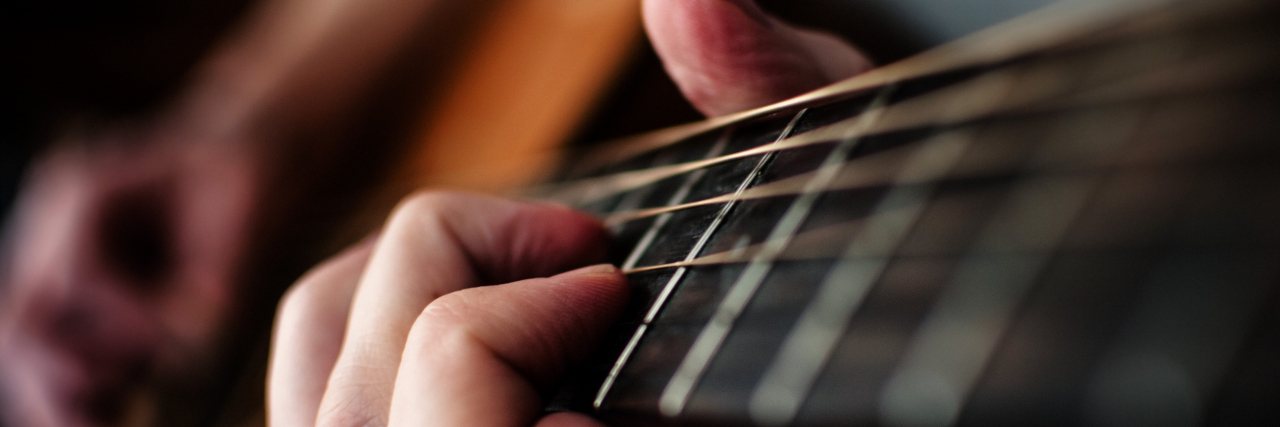I have always loved music. I loved to sing along with the radio. I’d sing in the shower. I was in the kids’ choir at church. I played the piano and flute for several years. I was in marching band in high school. So I was not unfamiliar with how to sing to tune or clap to the beat. Once I had a stroke, all that changed.
After the ischemic brain stem stroke, I couldn’t talk or move. My communication was limited to blinking my eyes. After much hard work at subacute therapy, I wound up in a wheelchair at inpatient therapy at the hospital. I could say short sentences and walk short distances with a walker at this point. I was all too familiar with physical therapy, occupational therapy, and speech therapy. I was surprised to find myself in music therapy.
Although music had been part of much of my life, that came to a crashing halt after my stroke. I could barely hum, let alone sing or play an instrument. So I was surprised to be sitting in a circle with other stroke/TBI survivors and holding a pair of maracas.
Everyone in the group had some type of simple instrument to play, and when the leader played a guitar, everyone else played along with her, making “music.” Now, I wasn’t regularly a maraca-shaking kind of girl. I could barely shake the maracas let alone keep any type of rhythm. I honestly felt foolish and didn’t know how this was supposed to help my recovery.
The next music therapy session was later in the week and I was made to go. I wasn’t there by choice. This time, the leader was having the survivors each choose a song and everyone sang along with the guitar player. I kind of mumbled, halfheartedly participating. Then, the leader brought me a big notebook of songs and asked me to pick one. A bunch were rap or hip hop — not my style. Then, I saw a familiar one I had always loved, “The River” by Garth Brooks, my favorite singer.
As I listened to the familiar beginning strums of the song, I forgot where I was and sang my heart out. I had the song memorized, so I didn’t have to look at the words. I closed my eyes and I sang along to the tune I’d heard so many times before. I could actually sing better than I could talk at that moment! I cried tears of joy because for a few minutes, I felt “normal.”
At speech therapy the next few days, I asked my therapist if I could sing some more Garth Brooks songs. She looked them up on YouTube and I sang loudly to “Friends in Low Places” and “The Thunder Rolls.” I would listen and sing away to songs in my hospital room while I was by myself. Amazingly, I remembered words to songs and sang clearer than when I had a regular conversation. It helped me feel like me somewhat.
I never thought singing would help me to speak again, but there you have it. Singing was a way for me to feel close to a regular person and encouraged me to try harder in other areas of my recovery.
Now, I still sing in the car along to the radio, but my teenagers tell me to stop. Heaven forbid mom get her groove on.
Getty image by Eye Em.

